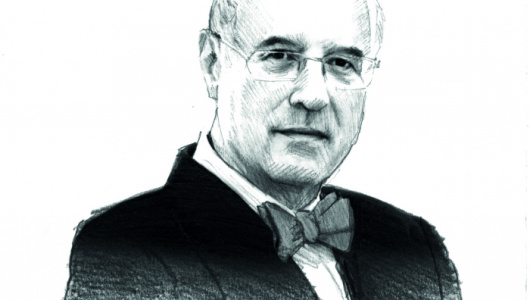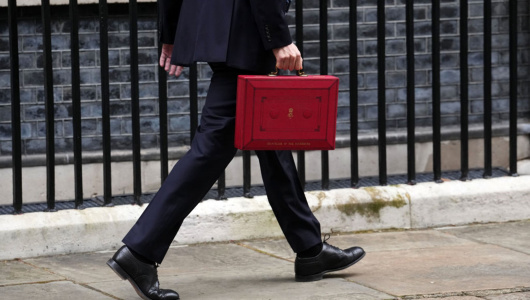
A phrase we keep reading is the “advice gap”. And I get it. It’s a big problem
Only a tiny fraction of the UK population receives financial advice. The Retail Distribution Review, for all the good it has done, has only widened the gap further, as has the growing cost of compliance.
Sadly, advice has largely become the preserve of the already very wealthy.
Thankfully, there’s a growing consensus that the advice gap needs fixing. Indeed, the Financial Conduct Authority appears to be on the case.
Yet, while I would love to see a wider range of people have access to advice, there is surely a far more crucial and fundamental issue in danger of being overlooked. I call it the ‘consumer sophistication gap’.
This knowledge gap is still the elephant in the room
When I started writing about investing after the global financial crisis, it struck me that the biggest obstacle to better investment outcomes was an asymmetry of knowledge between the industry and the consumer.
Most people lacked a basic understanding of how investing worked, which meant they were easy prey for product peddlers and other financial professionals who didn’t have their customers’ interests at heart.
True, things have improved in the meantime, but this knowledge gap is still the elephant in the room.
The problem is not just that too few people are receiving financial advice; it’s also that, even of those who do, a sizeable proportion are getting it from advisers with questionable technical competence or whose ethical and professional standards leave much to be desired
Advice is an example, along with healthcare and car repairs, of what academics call a ‘credence good’. Consumers struggle to evaluate quality even after purchase
The authors of a new paper on the quality of financial advice in the latest edition of the Journal of Economic Perspectives agree.
Although it focuses primarily on the US, the paper equally applies to the UK. Financial advice, the authors note, is an example, along with healthcare and car repairs, of what academics call a “credence good”. In other words, consumers struggle to evaluate quality even after purchase.
The reason why people have difficulty assessing the quality of advice, the paper suggests, is that they simply don’t know enough about investing or the financial markets to make an informed judgement.
For example, they’re often persuaded by advisers to buy expensive funds without knowing there are better and cheaper options available, or to take concentrated active bets when they should be diversifying.
In other words, the authors write, “the same lack of sophistication that drives the demand for financial advice also makes it difficult for households to differentiate between competent and incompetent advisers”.
Better information would help consumers to spot the warning signs and walk away if they’re unconvinced by the quality of the advice on offer
Narrowing this consumer sophistication gap would have huge benefits, both for consumers and society as a whole.
Better informed consumers would have a clearer understanding of what advisers actually do and how they add value. That knowledge would help them choose what sort of adviser to talk to and what questions to ask them.
It would also help them to spot the warning signs and to walk away if they’re unconvinced by the quality of the advice on offer.
Another significant benefit of having better-informed consumers would be a greater awareness of the different options they now have available.
For me, fixed-fee financial planning, including ongoing, evidence-based investment management, is the gold standard. I myself pay an annual fixed fee to a financial planner. But what’s right for me is not right for everyone.
Some platforms now offer automatic rebalancing, so all you need to do is to open an account and start investing
Not everyone needs, or can afford, to pay for ongoing advice. Many people are perfectly capable of managing their own investments. Some platforms now offer automatic rebalancing, so all you need to do is to open an account and start investing.
Increasingly, too, you can pay for advice as and when you need it, and the same with financial planning.
No, it’s not the same, or indeed as good, as having an ongoing relationship with the same adviser or planner, but it’s considerably cheaper, which makes advice and planning more affordable to those on average incomes and without substantial assets to their name.
As my fellow Money Marketing contributor Steve Conley has explained many times, you don’t need to pay for regulated advice if you’re willing to manage your own investments
How, then, can we narrow the consumer sophistication gap? As the US paper says, financial education is key. Websites and financial educators such as Claer Barrett, Iona Bain and Peter Komolafe have an important part to play.
I also see a major role in the future for financial coaching. I do still have reservations about it, particularly around redress should things go wrong. However, as my fellow Money Marketing contributor Steve Conley has explained many times, you don’t need to pay for regulated advice if you’re willing to manage your own investments.
Yes, of course, let’s do what we can to address the advice gap: the more people receiving advice the better. But we mustn’t forget the consumer sophistication gap. That’s the one we need to narrow most of all.
Robin Powell is a freelance journalist and editor of The Evidence-Based Investor














First class article. Yes, there is a lack of basic understanding. And why do you think that is? Just look at the lamentable educational standards, that should give you a clue. It would be a virtuous circle. If the people to which you refer were better educated, they would possibly have better jobs and income, leading to a better awareness of financial matters. A win win.
Although in fairness I can’t understand why at the current median UK income of around £35,000 there are not more people able to save and invest.
Once again, we see financial advice being conflated with investment advice. Tut-tut.
“…the future for financial coaching. I do still have reservations about it, particularly around redress should things go wrong.” – If you want access to a redress scheme then those active in the financial coaching market place will need to fund such a scheme. But then we’re back full-circle to the costs of the market place and the subsequent impact affordability to the masses.
Maybe it’d be cheaper and more effective to produce a book on good financial planning and send a copy to each UK adult explaining the pros & cons of DIY versus seeking paid-for professional help (with the support of PI, regulation, FOS and redress schemes) and then let them take their pick. They cannot ‘have their cake and eat it’ despite what some journalists may think. Because regardless, the majority fail to fully-grasp the benefits of education, whether that be state-funded school education or the plethora of financial educational material that already exists.
Maybe if some sacrificed the designer clothes, latest iPhone, SKY & Netflix, the shiney new car finance and 3 weeks in the sun each year then maybe, just maybe, they might have some spare cash to (a) invest and/or pay protection policy premiums, and (b) pay for regulated financial planning & advice pertaining to (a) and their wider financial affairs, and ultimately find themselves with a securer future. But most won’t due to apathy and/or ignorance. Fortunately, the majority of highly-taxed, over-regulated advisers don’t need to fish among this pool of “most” people and instead have identified more than enough educated clients and prospects who are more sensible with their approach to their own finances.
“We see financial advice being conflated with investment advice. Tut-tut.”
This holier than thou attitude rather points to some of the failings in this industry/profession. Financial advice is at the most basic about making people better off. That is, plain and simple about money. Odd that you contradict your own first sentence later in your piece:
“They might have some spare cash to (a) invest and/or pay protection policy premiums” Quite so.